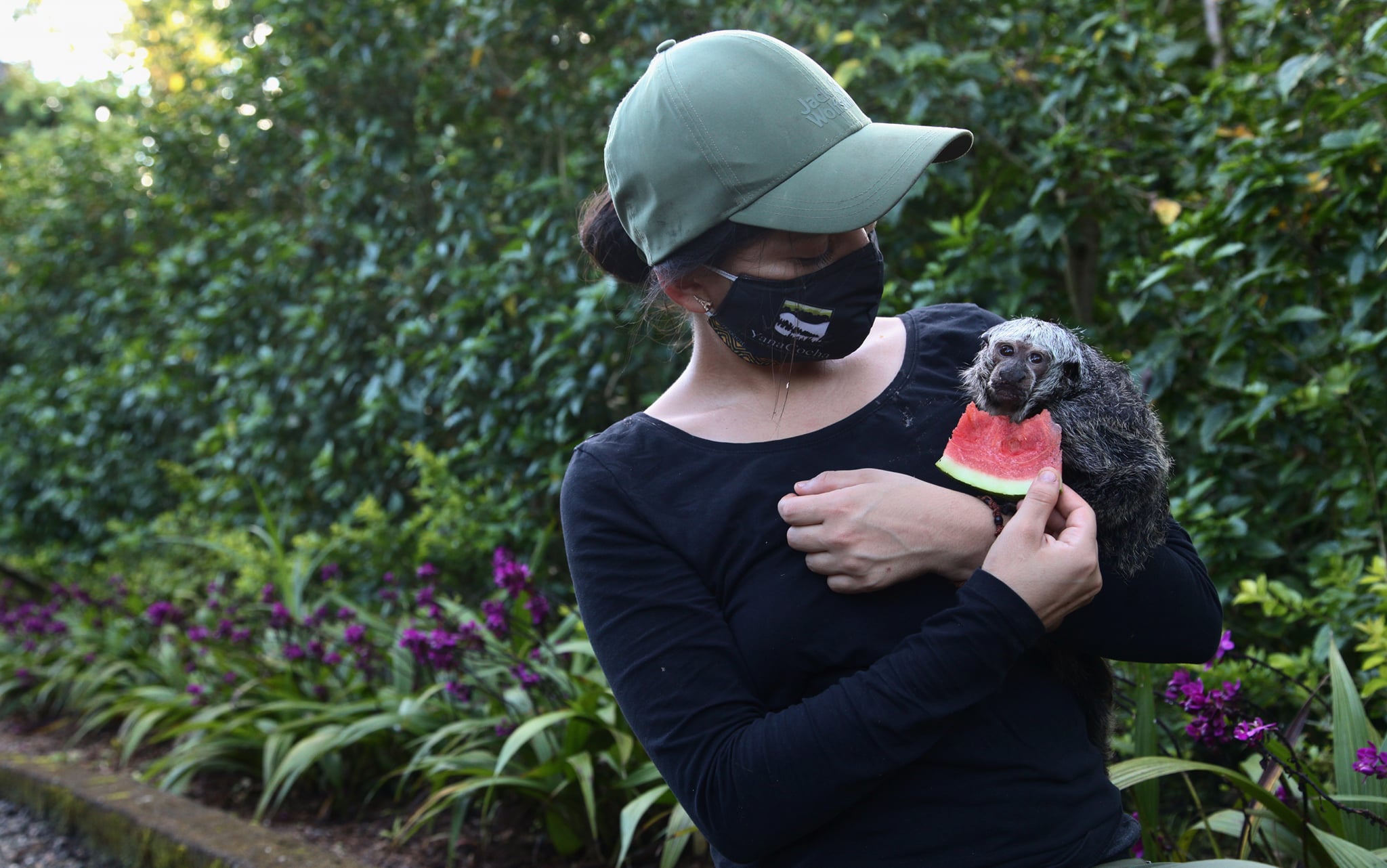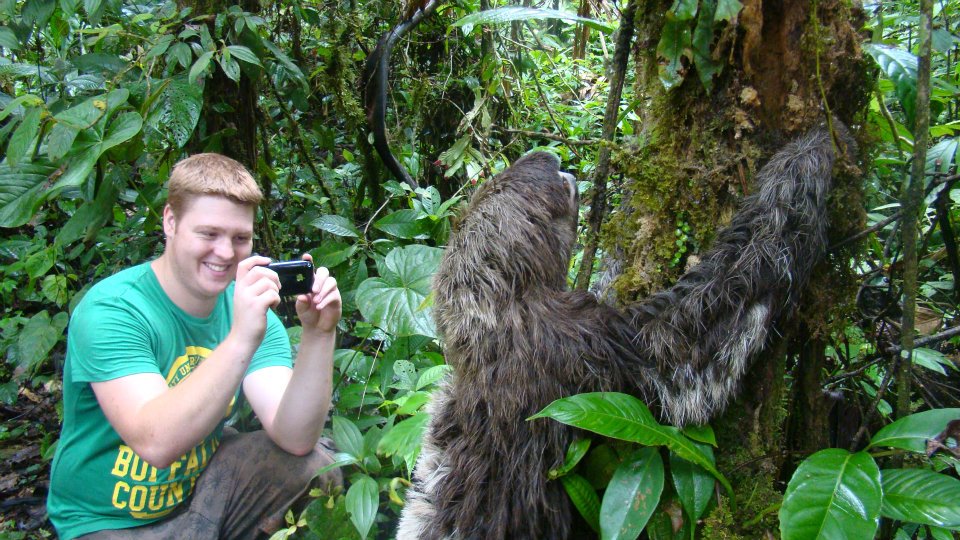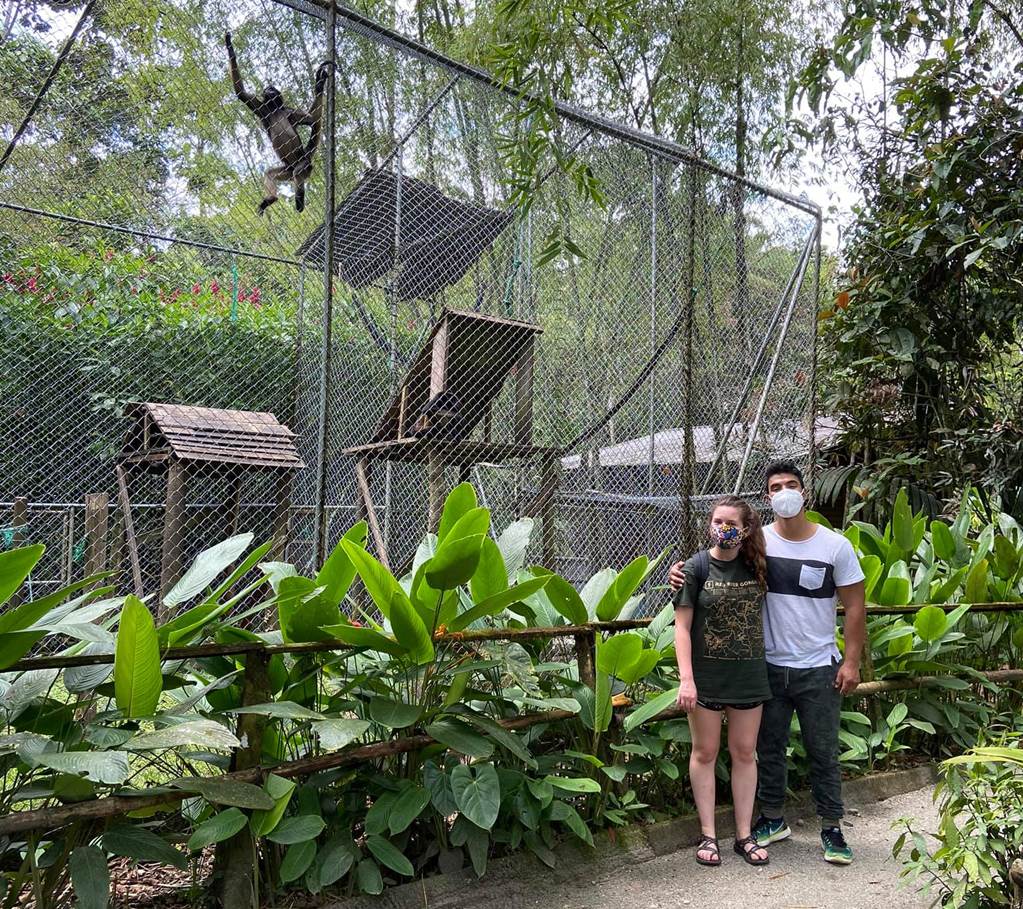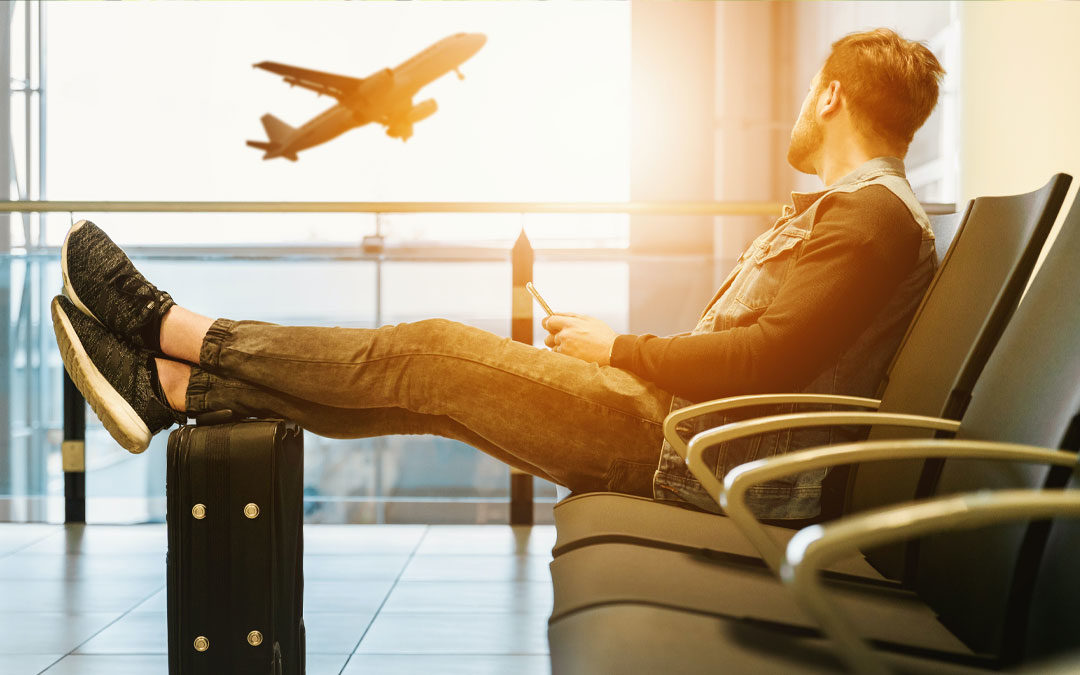
First of all, because this is an amazing conservation project which has been receiving trafficked animals to rehabilitate them and return them to their habitat when possible since 2006. Unfortunately, a very high percentage of these specimens may not return back to nature, as have long lived as pets or have social, physical, or biological problems preventing their rehabilitation, so, at the center, they are given the best conditions to live in, as similar to their natural habitat as possible.
Besides that, in the current situation, this is one of the best and safest places in the country (and the world), since contact with outsiders is almost non-existent. All activities are carried out within the center with all the biosecurity protocols, in addition, the center’s staff is limited and most of them are members of the same family.


For more than 14 years this project has been financially sustained by the entrance fees of the visitors to the rescue center, the tourists who come to the eco-lodge located in the private reserve, and of course, the support provided by the interns and volunteers who are the soul and life of the center and the main people responsible for keeping this project going. However, due to the pandemic, they have lost most of their income and the number of volunteers has decreased, but the work never stops.
This project also works hard in the fields of research, conservation, education and public awareness. It also has a private reserve where the release of the specimens that are ready is carried out.
The project
Length:
· Minimum of 4 weeks and a maximum of 12 weeks, without a tourism visa extension.
· With a tourism visa extension, maximum time will be 24 weeks.
*Applyes for US, Canadian and European students
General Project information during COVID times:
· PCR negative test results to be shown to the local authorities when departing to Ecuador or arriving at Quito’s international airport.
· Private transfer from the airport to our shared house in the Middle of the World.
· 2-week quarantine at our shared house in the Middle of the World with 3 meals included.
Time distribution
o Remote orientation with EcuaExplora Site Director
o Remote orientation with the local supervisor
o Monday-Friday virtual exercises (one hour per day)
o Monday-Friday Spanish classes (one hour per day)
o 8 cultural modules about Ecuador
o Local buddy assigned to each participant with at least 2 conference calls each week (4 total).
o Rescue Center remote involvement: social media posts, document translations Spanish-English, website information, blogs, magazine development, among others. Of approximately 2-4 hours per day, 5 days a week.
· Private transfer to the animal rescue center in the Amazon. The mobilization must be to/from Yanacocha in private transportation. It is forbidden to use public transportation.
· 2+ weeks working with the animals there.
Once the participants arrive at the Animal Rescue Center, they will not be allowed to leave the center for any reason, unless it is for a medical purpose.
· Meals: 3 meals will be provided Mon-Fri and breakfast on Saturday during the time at the Center. The center counts with a communitary kitchen with all the
commodities so that the participants can prepare their own meals for Saturdays and Sundays.
· At the end of their time at the center: private transfer from the Center to the
airport or to the shared house in the Middle of the World to stay there for the night and take another private transfer the next day to the airport (this will depend on the time of the international flight).
Bio security measures
Hand washing:
- Have the supplies to perform hand hygiene with clean water and liquid soap.
- The volunteer must bring his/her own supplies of at least 70% anti-bacterial gel.
- The center will provide anti-bacterial gel in crowded places such as wifi areas and at the exit of the dining room.
- Hand washing should last at least 40 seconds and should be done as often as possible.
Physical distance:
- Physical detachment means maintaining a space between people while performing our activities.
- Maintaining social distance between people of the same group is a difficult task to achieve, but we could try to at least maintain the distance with people of other groups (tourists).
- Participants are not allowed to get close to tourists (if any) during their time at the center.
Personal protection elements:
- Personal protective equipment must be used when interacting with others outside the group.
- The elements that we must have with you during the entire trip to be used at the time are a mask and some type of goggles, it should be mentioned that the use of gloves is not recommended.
Other general rules:
- Maintain at least a distance of two meters with the people around.
- Not to relate to or approach people outside the center.
- It is forbidden to go outside the biopark until the end of the program. Any food or personal hygiene supplies will be listed and brought to the center by the supermarket.
- No more than two people per room.
- If someone at the center presents any type of symptom that can be related with covid, the person will stay in his/her own room and, if there was another person in the same cabin, that person will be moved to another cabin to avoid any contact. Meals will be provided at the room until the symptoms are gone. If the symptoms continue, a PCR test must be done and, until having the results, the person will continue in quarantine at the center if stable.

